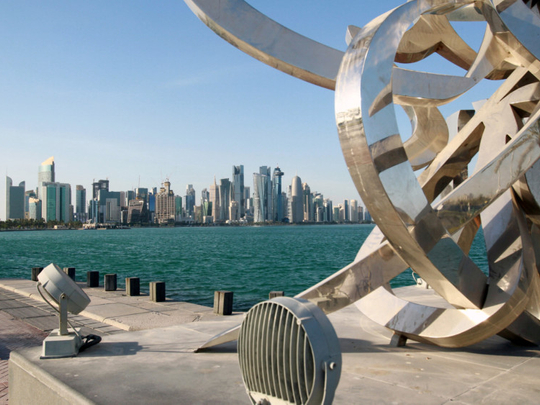
Doha is continuing its policy of dodging accusations of terrorism, while knowing full well that these complaints did not emerge out of thin air, said the UAE’s Al Bayan.
“French Foreign Minister Jean-Yves Le Drian, who is currently visiting the region, was shown by Saudi Arabia the Qatari files that prove Qatar’s involvement and support for terrorism. This would explain Le Drian’s comments when he said that France rejects the supporting and financing of terrorism, especially when the fires of terrorism had touched his nation before. All international investigations concerning acts of terrorism show that Doha has either financed some organisations or had its media play a role of incitement by spreading hatred or anger that encouraged criminals to carry out their crimes. Doha will not be able to end its own predicament unless it first reconciles with itself, its Gulf and Arab neighbours, and once it starts prioritising the lives of Qataris over that of its bloody role,” the newspaper said.
The entire world knows that the action taken by the four countries against Doha is a natural outcome due to Qatar’s flawed policy of supporting terrorists financially, politically and through the media, wrote Saudi Arabia’s Al Yaum. “Such a policy does not only harm Doha, but it also inflicts the most damage to nations in the Gulf Cooperation Council (GCC) region and Islamic countries. All these countries, without exception, have supported the four nations’ action to boycott Qatar. It is a wise decision that should not come as a surprise, and it was taken after the four countries ran out of patience and could no longer remain silent over Qatar’s financing of terrorist organisations for many years. Doha’s financial, political and media support for these organisations instigates hate, extremism and sectarianism and incites violence, and such practices are rejected by the international community and contradict international charters and laws.”
Qatar is still persistent on playing the part of a victim through its diplomatic and media campaigns with the main objective of rejecting the voice of reason, noted Kuwait’s Arab Times. The paper said: “The four countries that declared war against terrorism have announced for the umpteenth time in the past weeks readiness for dialogue, but Qatar insisted there could be negotiations only if the so-called embargo is removed. This is naturally illogical, especially as the condition is coming from the weaker party in the equation. All that remains to be said is: Qatar should return to the default path, which has been determined by all the countries ... and stop betting on illusion in a bid to achieve illusory victory through the media and diplomatic campaigns that distort facts.”
The international attention and focus on all of its declared and hidden policies has prompted Qatar to think a thousand times before taking any step that would confirm that it is guilty of what the world had previously turned a blind eye to, wrote the London-based Pan-Arab paper Asharq Al Awsat.
“For instance, now Qatar cannot pay half a billion dollars to extremist militias in Iraq as it did in the past to release its 26 captives. It will not be able to strike a deal with Al Nusra Front and displace residents of four Syrian towns ... Clearly, the current crisis with Qatar is heading towards temporary separation,” the paper commented.




_resources1_16a31069e4e_small.jpg)







